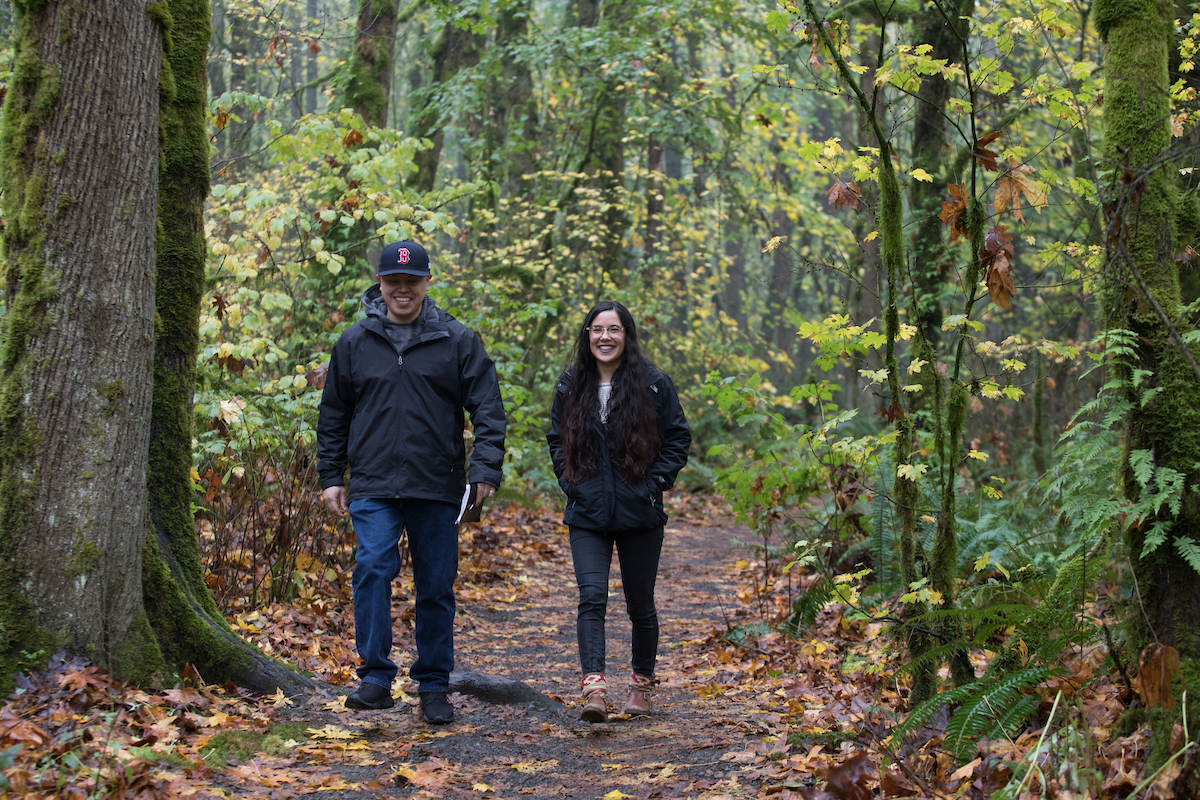Fall 2020
Cultural Ecology in the Urban Forest at Tryon Creek
This course is designed to inspire and question the ways we educate both ourselves and our next seven generations as global stewards. Through remote discussions and exercises, readings and media, nature journaling, and personal reflection, students will gain a deeper appreciation of the authentic cultural ecology of the area. Students will have the opportunity to collaboratively apply their learning to a community outreach project that helps the extended Tryon Creek community in building unique and lasting relationships with the natural world. The projects and course will take place mainly in person at Tryon Creek.
Philosophy for Children (P4C) programs promote the development of critical thinking, metacognition (thinking about thinking), and ethical and social responsibility through philosophical inquiry. In the P4C capstone, students will learn about best practices in P4C and discuss the practical and philosophical issues of teaching philosophy to K-12 students. Course work will include researching and developing P4C activities and materials, collaborating with Portland-area teachers, leading K-12 student discussion on philosophical themes, and documenting activities.
Performing Arts Advocacy
The arts play a critical role in stimulating creativity and in developing vital communities. They have a crucial impact on our economy and are an important catalyst for learning, discovery and achievement in our county.
 The Grant Writing for Animals: Wildlife Conservation in Africa class partners with the Kasese Wildlife Conservation Awareness Organization (http://www.kasesewildlife.org) to further its goals of creating wildlife awareness and increasing conservation efforts in Uga
The Grant Writing for Animals: Wildlife Conservation in Africa class partners with the Kasese Wildlife Conservation Awareness Organization (http://www.kasesewildlife.org) to further its goals of creating wildlife awareness and increasing conservation efforts in Uga
 Tryon Creek: Cultural And Ecological Education. Students will participate in interpretive programs facilitated within the Tryon Creek State Natural Area.
Tryon Creek: Cultural And Ecological Education. Students will participate in interpretive programs facilitated within the Tryon Creek State Natural Area.
Grant Writing for Indigenous Sustainability In the online Capstone course Indigenous Grant Writing, students work collaboratively in teams to research and write grants, and to understand the issues of Indigenous communities. Students gain an understanding of collaborative work and the importance of equal participation from every team member. Students examine the role of non-profit organizations in addressing social, ethical, and political issues.
Equal Access for Justice
A comprehensive and engaging examination of contemporary multicultural and cross-cultural imperatives, this capstone explores the barriers to justice for ethnic and racial minorities. Special attention will be given to the U.S. institutional structure and the justice system. Utilizing a progressive and proactive approach, students will acquire a deeper understanding, awareness and appreciation of the root causes of the existing disparities. Their learning outcome will be enhanced through design and formulation of proactive solutions to secure fairness, equity and justice for all.
